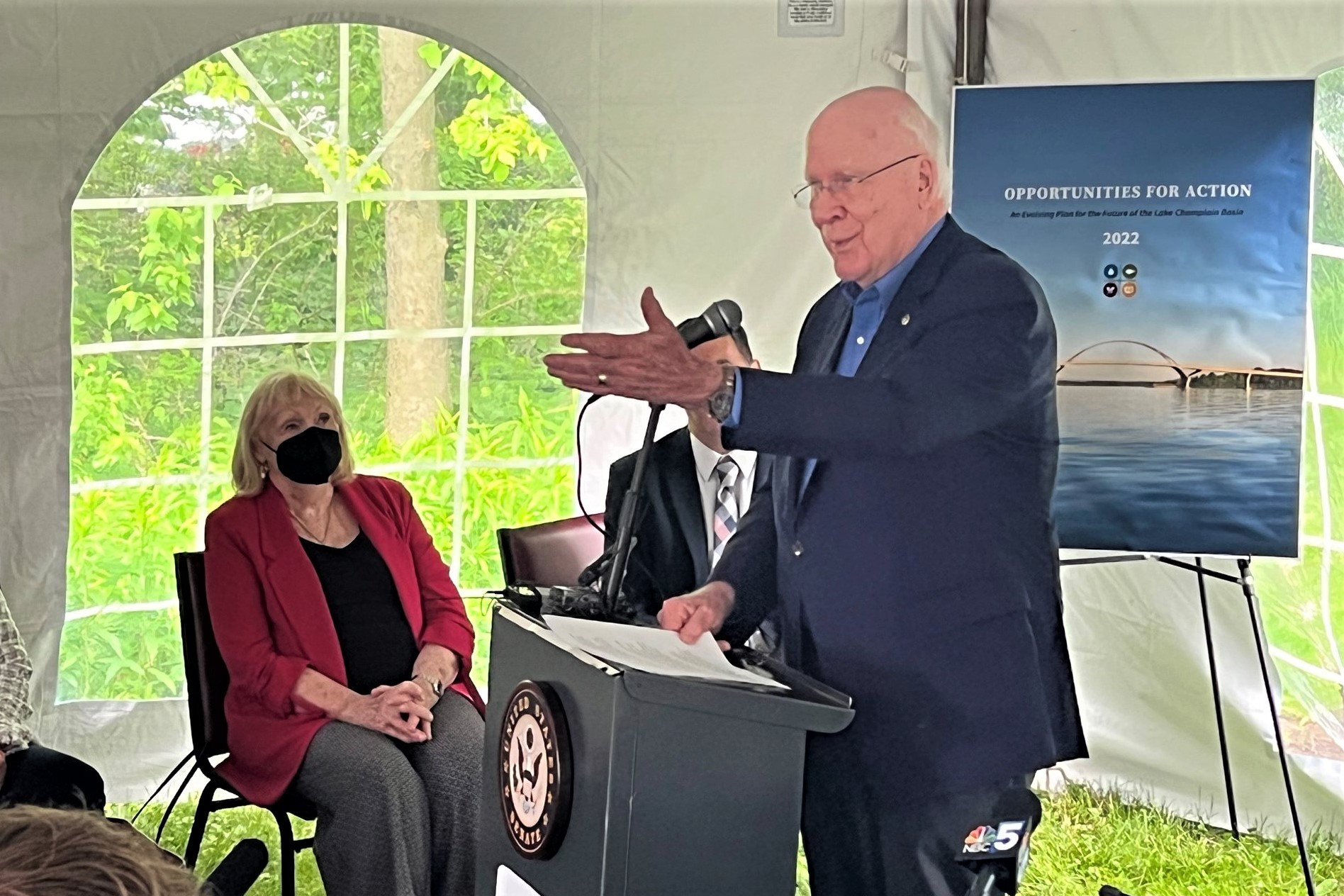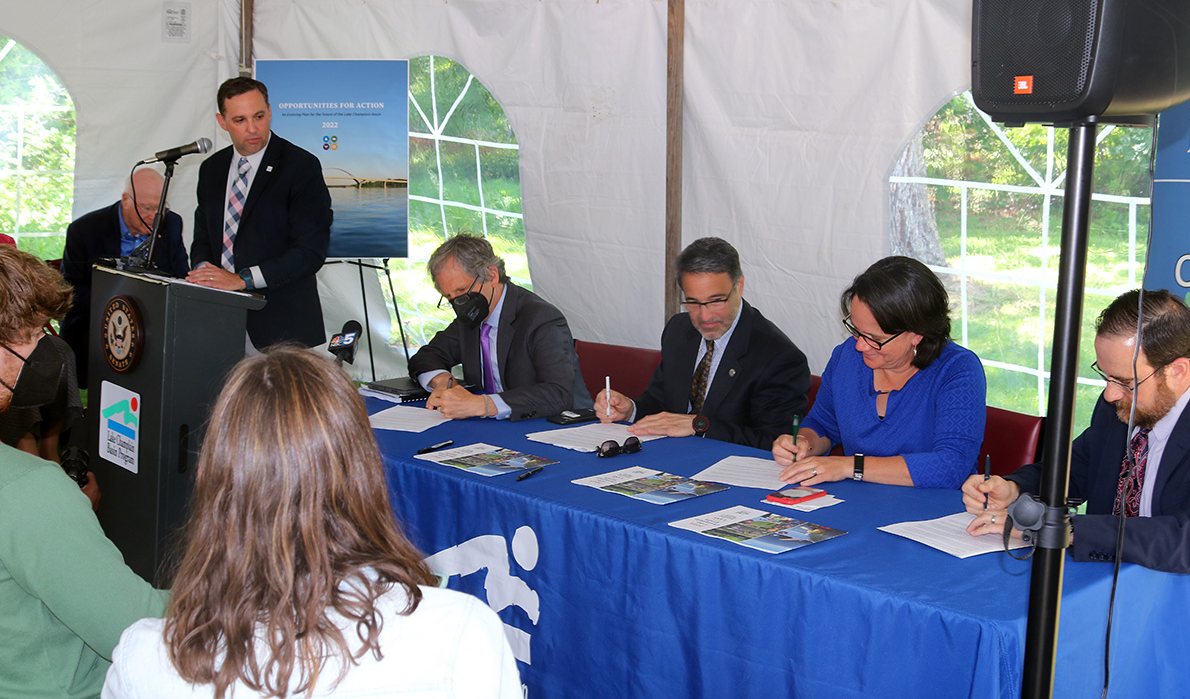During a lakeside event on June 3, the Lake Champlain Basin Program (LCBP) released an update to its management plan, “Opportunities for Action: An Evolving Plan for the Future of the Lake Champlain Basin.” U.S. Senator Patrick Leahy, representatives from New York, Vermont, and Québec, and EPA officials from Boston and New York City were in attendance for the plan signing ceremony. The plan will guide the LCBP’s work over the next five years to improve water quality and aquatic ecosystem health in the watershed.

“The success of this plan hinges on the involvement of the public and engagement of local organizations,” said Eric Howe, NEIWPCC program director of the Lake Champlain Basin Program and Champlain Valley National Heritage Partnership. “Opportunities for Action” must ensure that communities within the Lake Champlain Basin – from Lake Placid, New York to Sutton, Québec, to Mt. Tabor, Vermont – understand and appreciate the value of Lake Champlain to their communities and have the capacity to do their part to improve the health of the watershed.”

The plan lays out objectives and strategies to address four primary goals: clean water, healthy ecosystems, thriving communities, and an informed and involved public. The 2022 version of “Opportunities for Action” is its fifth iteration, addressing the latest challenges and opportunities surrounding nutrient loading, aquatic invasive species, habitat conservation, cultural heritage preservation and more. The plan also highlights two overarching goals: addressing the impacts of a changing climate on water quality and ecosystem health of the Lake Champlain watershed, and including diverse voices in decision processes and supporting communities with environmental justice concerns related to the lake.
NEIWPCC Executive Director Susan Sullivan said, “NEIWPCC is pleased to continue supporting the Lake Champlain Basin Program and its partners with the unveiling of this update to Opportunities for Action. Coordinating the management of our invaluable aquatic ecosystems across the region is critical to continued progress in water quality. The Lake Champlain Steering Committee and LCBP staff are now poised to work with partners to address the critical topics of climate change and environmental justice.”

For more information about the plan, go to the Lake Champlain Basin Program website.